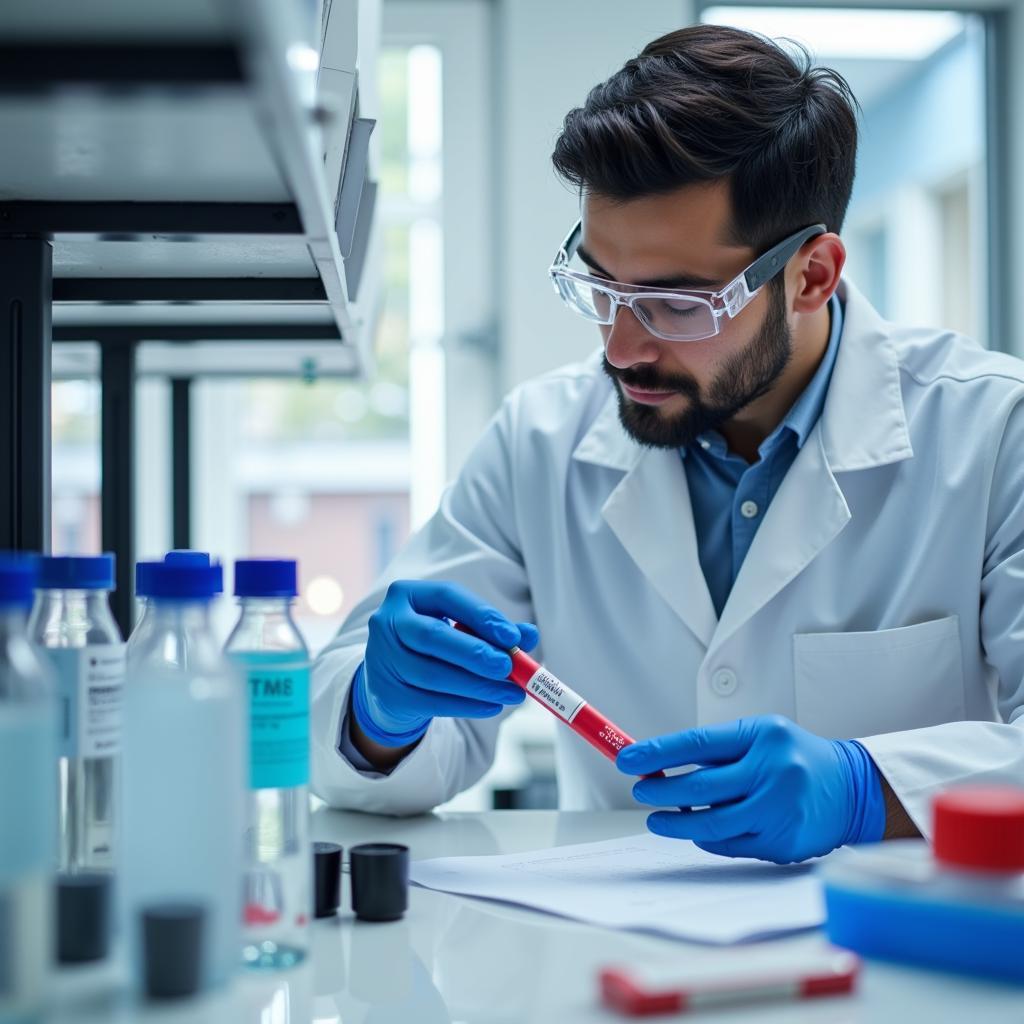When questions of paternity arise, it’s natural to seek answers swiftly and discreetly. You might wonder, “Will Hospital Do Paternity Test?” While hospitals are equipped to handle a range of medical procedures, paternity testing might not be one of them. Let’s explore why and where you can turn to for accurate and reliable paternity testing.
Understanding Paternity Tests
A paternity test uses DNA analysis to determine the biological father of a child. It involves collecting DNA samples, usually through buccal swabs (cheek swabs), from the alleged father, child, and sometimes the mother. These samples are then analyzed in a laboratory to compare DNA profiles and establish paternity.
Why Hospitals Might Not Offer Paternity Testing
While hospitals are centers for medical care, paternity testing is primarily a legal matter. Here’s why hospitals might not conduct these tests:
- Lack of Specialized Services: Paternity testing requires specialized laboratories and technicians trained in DNA analysis. Most hospitals don’t have these facilities on-site.
- Legal Implications: Paternity tests often have legal ramifications, especially when used for child support, custody battles, or inheritance disputes. Hospitals may avoid offering these tests to maintain neutrality and avoid potential legal entanglements.
- Focus on Medical Care: Hospitals prioritize diagnosing and treating medical conditions. Paternity testing falls outside their core medical services.
Where to Get a Paternity Test
If you’re looking for reliable paternity testing, consider these options:
- Accredited Laboratories: Look for AABB (formerly American Association of Blood Banks) accredited laboratories. These labs adhere to strict quality standards and ensure accurate and reliable results.
- Home Paternity Tests: Several reputable companies offer home paternity test kits. You can collect DNA samples at home and send them to the lab for analysis. However, these tests might not be admissible in court due to chain-of-custody concerns.
- Court-Ordered Testing: In legal cases, the court may order paternity testing through a designated laboratory.
Choosing the Right Option
The best option for you depends on your specific needs and circumstances:
- Peace of Mind: If you’re seeking personal knowledge about paternity, a home test kit from a reputable company might suffice.
- Legal Purposes: For legal matters, it’s crucial to opt for AABB-accredited laboratory testing or court-ordered testing to ensure the results are admissible in court.
 Paternity Test in a Laboratory
Paternity Test in a Laboratory
What to Expect During a Paternity Test
The process of getting a paternity test is relatively straightforward:
- Choose a Testing Facility: Research and select a reputable laboratory or testing service.
- Schedule an Appointment: Contact the facility to schedule an appointment for sample collection.
- Provide DNA Samples: Typically, buccal swabs are used to collect DNA samples from the inside of the cheek.
- Await Results: The laboratory will analyze the samples, and you’ll receive the results within a specified timeframe, often within a few business days.
Understanding the Results
Paternity test results typically show one of two outcomes:
- Inclusion (Paternity Confirmed): This indicates a high probability (usually 99.9% or higher) that the alleged father is the biological father.
- Exclusion (Paternity Excluded): This means the alleged father is not the biological father.
Conclusion
While hospitals might not be the go-to place for paternity testing, several reliable options are available. Whether you need a paternity test for peace of mind or legal reasons, choosing a reputable laboratory or testing service is crucial for accurate and trustworthy results. Remember to consider your specific needs and consult with legal professionals if you require a paternity test for legal proceedings.
FAQs about Paternity Tests
1. How accurate are paternity tests?
Paternity tests conducted in accredited laboratories using DNA analysis are extremely accurate, often exceeding 99.9% accuracy.
2. How much does a paternity test cost?
The cost of paternity testing varies depending on the type of test, the testing facility, and whether it’s court-ordered. Home paternity tests typically cost between $100 and $200, while legal paternity tests can range from $300 to $500 or more.
3. How long does it take to get paternity test results?
Results for paternity tests are usually available within a few business days, but expedited services might offer faster turnaround times for an additional fee.
4. Can I collect DNA samples at home?
Yes, home paternity test kits allow you to collect DNA samples yourself. However, it’s essential to follow the instructions carefully to avoid contamination, which could affect the results.
5. Are paternity test results admissible in court?
Paternity tests conducted by AABB-accredited laboratories or court-ordered tests are generally admissible in court as evidence of paternity.
Do you have any other questions about paternity tests?
can the hospital do a paternity test, do they do paternity tests at the hospital, can hospitals do paternity tests, or do hospitals do paternity tests? Our team is here to help!
Need assistance or have more questions? Contact us at Phone Number: 02437655121, Email: [email protected], or visit us at 298 Cau Dien Street, Minh Khai, Bac Tu Liem, Hanoi, Vietnam. Our dedicated customer support team is available 24/7 to assist you.